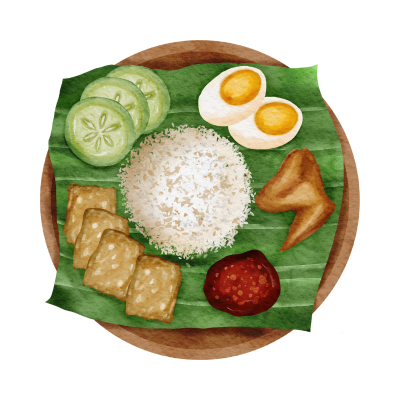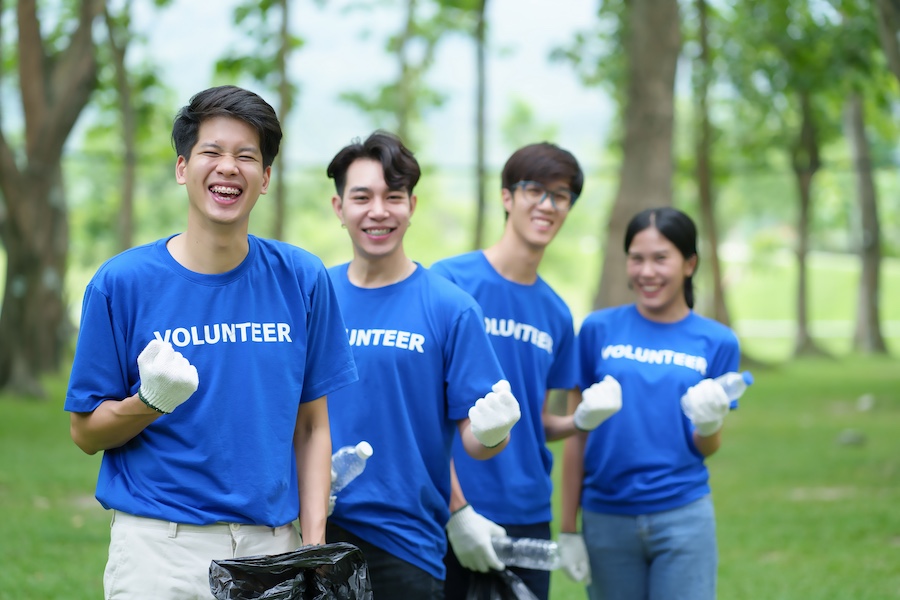Extracurriculars are very important for college admissions. This is because colleges are more than just a place to take an assortment of classes and receive a very expensive piece of paper; they are communities where you live for four years, interacting with your peers. You’ll only spend a fraction of that time in class or doing schoolwork; admissions officers are keen to see how you’ll spend the rest of your time.
They also want to see your passions, what you care about enough to spend your limited time on it. As they read through extracurriculars, however, there are some that they see far too often, or which conjure up negative associations. In this article, we’ll cover what makes an extracurricular overdone, how admissions officers view them, and how to approach selected extracurriculars in ways they will see in a positive light. Let’s get started!
What Makes an Overdone Extracurricular?
College admissions, like so many other things in life, is all about perceptions. This means extracurriculars, in general, fall into a few distinct categories, even though admissions officers don’t technically divide them that way. Here is a useful (though analogy laden) description:
Meat and Potatoes: These are your classic extracurriculars; varsity sports, theatre, student government, speech and debate. So many students do these that they are almost never exceptional or notable, but being really really good stands out, just because of how much competition there is. Note that the bar for really really good is high, just because of how common these are.

Side dishes: These are less common, but still seen often. Maybe not every school offers them, but a significant number of students will partake. Dance, Model UN, academic competitions, science fairs. These don’t stand out on their own, but are not judged negatively. You just need to do them really well to be noticed.

Niche cuisine: These are extracurriculars which are odd and interesting in their own right, just because they don’t show up all that often. A student who fights every week with the Society for Creative Anachronism, one who has been nurturing a topiary for years, or the youth champion of cheese racing is odd enough to stand out. This doesn’t guarantee admission of course, but is enough to be noticed.

Bland dishes: These are activities which can actively detract from an application because they say nothing about who you are or what you care about. Listless and generic volunteering, short term tutoring, voluntourism, participating in school spirit events; anything that gives the perception of being a passive joiner or a resume padder leaves admissions officers with a poor taste in their mouths, and makes them uncertain about the merits of an application.

The Difference Between Common and Overdone Extracurriculars
Football is a common extracurricular activity. Almost every high school has a football team (though the quality and emphasis on those teams can vary a lot). Almost every college has one too. Everyone basically knows what football is, and has an understanding of how much effort it requires. Just playing football won’t impress colleges, but it can be used to show off certain skills and values they like. It may not be the most exciting, but it is understood and accepted.
Generic volunteering, a few hours here and there every few months, a different place every time, working to meet the requirements many high schools have is also common. This, however, does not impress admissions officers. This is because of what admissions officers look for in extracurriculars. We’ll use this handy chart to demonstrate:
| What Admissions Officers want from an extracurricular | Football | Generic Volunteering |
| Shows commitment over a long period to a single goal | Usually | No |
| Allows a student to demonstrate their values | Yes | Sometimes, maybe |
| Shows what a student is passionate about | Usually | No |
| Shows leadership or devotion to a community | Sometimes | Not really |
| Shows what a student cares about | Usually | No |
To note: “Football” here assumes the student plays at a midlevel for all four years of high school, is never a breakout star, and does not plan to play in college. On its own, this is not particularly impressive, and will not get you into college. It can, however, be a vehicle for students to show what they care about and to demonstrate their core values. These may be cliche, but they are still useful for that fact.
In contrast, a generic and scattered approach to volunteering does nothing to tell admissions officers what you actually care about, or show passion. All it does is let them know you had an obligation to fill a certain quota of community service hours, and that you did so. There is nothing inherently wrong with this, but it also isn’t particularly impressive, and does not give you a good way to show off your skills or values.
Overdone Activities, and How to do them Right
So now that we’ve established what overdone activities are, and why admissions officers may not be fans of them, what can you do about it? In this section, we’re going to go over some of the most common overdone extracurriculars, and explore how you can do them in a way that’s more appealing to admissions officers.
Generic Volunteering
We’ve already explained what the problems are with this particular extracurricular, so how should you go about doing it correctly? In brief terms: you need to volunteer with intention, commitment, and follow-through.
First, pick out the places where you are volunteering intentionally. Look for causes you relate to, or issues you have a personal interest in. Are you passionate about computers? Consider helping to teach coding to kids. Excited about biology? Volunteer at a local park or arboretum. Interested in medicine? Hospitals, clinics, and other health care providers are frequently looking for volunteers.
Next, you can’t just show up all willy-nilly. There is usually some required number of hours for volunteering. Try to do this in blocks over a few weeks. This can mean more volunteering than is required of you, as some programs want their volunteers to commit to a longer engagement. This is exactly what you need. If your schedule is tight, look for ways to engage that still form solid blocks.
Finally, follow through with your engagement. Participate actively, and look for other opportunities to follow up. Working at a soup kitchen for a significant chunk of time on two weekends is something, but doing an hour a week for most of the year shows more commitment to colleges. In every case, you want to demonstrate through your volunteering what you care about, and that you are willing to work towards those goals.
Voluntourism
We’ve discussed voluntourism and its pitfalls before, but wanted to take some time to cover it here as well. To sum up, voluntourism is where students from a wealthy and developed nation travel to a poor country in order to do some token labor in order to feel good about themselves. In some cases this can provide a semi-valuable service, but mostly doesn’t result in any positive results.
This does not mean all overseas volunteering is useless; but pre-bought packages, mission trips, and many other missions are much more about letting students feel good about themselves, rather than helping them learn something or making positive contributions to the host country.
While we cannot fault the enthusiasm and willingness to help that high school students demonstrate, most do not have the necessary skills or experience to really be able to contribute in volunteering situations like this. We recommend volunteering closer to home; there are plenty of people who need your help right in your own back yard. For overseas travel, looking for legitimate exchange programs such as the one run by the Rotary club, or the excellent program put on by the US State Department are much better options.
Tutoring
Tutoring, in many cases, shares the exact problems as generic volunteering. On its own, tutoring is a great activity to participate in. The issue, quite often, is with approach. If you haphazardly tutor a handful of students in a handful of subjects over an extended period, then that doesn’t really paint much of a picture of what you’re interested in academically, or show off a significant level of commitment on your part.
Tutoring can be a wonderful activity, but it has to be approached intentionally. If you have an academic subject you excel at in high school, and want to continue to study it in college, then tutoring others in that subject can be a great way to demonstrate both your mastery of that subject, and your ability to work well with and help others.
Tutoring is generally another form of volunteering, and this too can look good if you do it over a long and consistent period. Colleges want to see that you’re able to commit to something and stick with it; after all, college lasts for four years, and they want to be sure you’ll be present and motivated for all of them. If you want to get involved with tutoring, choose a single subject you excel in, and commit to doing it for an extended period (at least a full school year) in that subject.
School Spirit Events
This is an interesting one, because it is again a matter of degree. Many students in student government spend long hours planning, working towards, and putting on school spirit events. This is frequently seen, but is generally well regarded by universities; it is another of those common activities that can impress, depending on how you present it.
These events also depend on student volunteers to show up to decorate, or run ticket booths, or contribute a few hours here or there to make sure the event goes off without a hitch. There is nothing wrong with doing this, but it is also unimpressive; spending a few hours doing tasks clearly defined for you to fulfill someone else’s vision isn’t something that will make admissions officers sit up and pay attention. Especially when compared to the work put in by other students in running these events.
If you do want to get really involved in your school community, student government and related opportunities are generally the best approach. These are very common activities; pretty much every high school has a student council; but they allow you to demonstrate your commitment to a community and your willingness to work towards a greater whole. It also showcases leadership; being the one to plan an event, even in part, is more impressive than just showing up to work towards its completion.
Final Thoughts
There are thousands of potential activities you can take part in during high school. Colleges have seen pretty much everything under the sun; the trick is making sure you express yourself through your activities in a way colleges find appealing, and demonstrate the kinds of values that colleges are actively looking for in admitted students.
We hope this article has outlined what makes an extracurricular overdone, and how to find better options that colleges will like seeing much more. If you want help finding the right activities to fit your strengths and interests, check out our candidacy building program. If you’re looking for advice on how best to portray activities you have already participated in to admissions officers, our college application coaching is perfect for you. In either case, schedule a free consultation today to learn how we can help you.
Voluntourism, generic volunteering, tutoring, school spirit events








